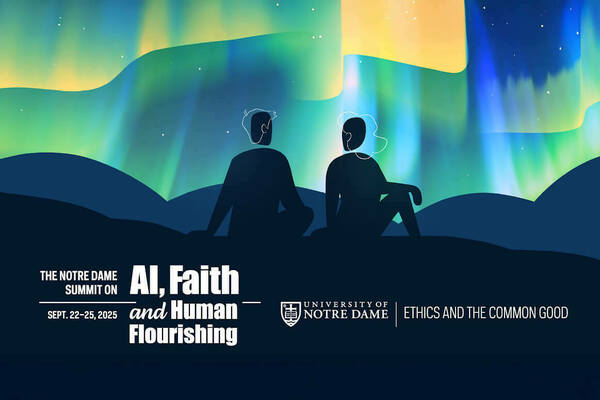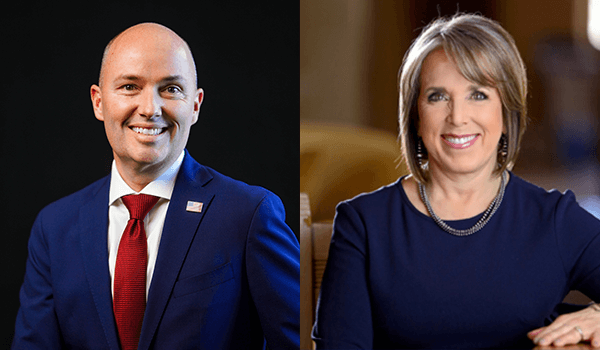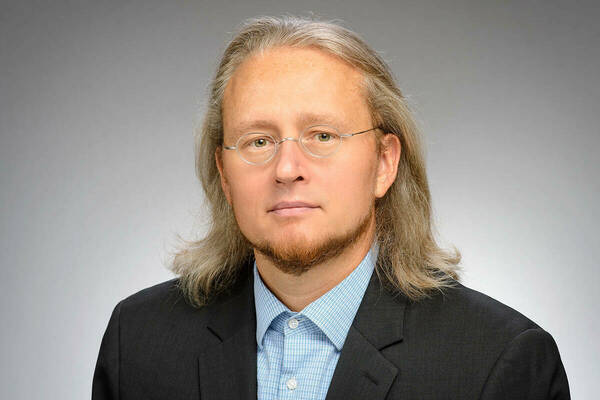Ben Pentreath named 2023 Richard H. Driehaus Prize laureate
Ben Pentreath, architect, designer, educator and author, is the recipient of the 2023 Richard H. Driehaus Prize at the University of Notre Dame. He will be awarded the $200,000 prize during a ceremony on March 25 (Saturday) in Chicago.
“Ben’s artistry and architecture combine to create urbanism across all contexts while he works effortlessly in harmony with the local landscape, heritage, climate and culture of the settings where his work is rooted — lending an aura of both authenticity and cultural continuity to it,” said Stefanos Polyzoides, Driehaus Prize jury chair and the Francis and Kathleen Rooney Dean of Notre Dame’s School of Architecture. “Most importantly, the work conveys a sense of stewardship of the Earth and its resources at a time when an attitude of conservation and investment should be an essential part of the solutions to address the environmental crisis of our time.”
The jury citation states: “As a luminary within a rising generation of architects, his work encompasses what the prize celebrates most: beauty, durability and commitment to place.”
Graduating with first-class honors in history of art and architecture in 1995, Pentreath excelled at the University of Edinburgh. While attending the Prince of Wales’s Institute of Architecture in London, he won the student competition for his design for the Poet Laureate Pub on Pummery Square, Poundbury. After working in New York and with the Prince’s Foundation for the Built Environment, he established his own architecture practice in 2004 and now employs more than 40 architects, urban designers and interior designers at his London studio. His interior design shop, Pentreath & Hall, which he co-owns with artist Bridie Hall, is one of the most influential studios in the London design world.
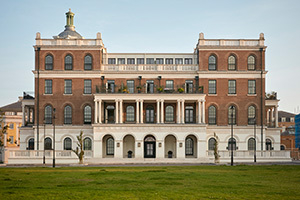
Pentreath’s firm has designed residential and commercial buildings in Poundbury and other new towns throughout the United Kingdom, including Truro and Tornagrain.
“The designs unerringly establish a sense of place, whether new or in the transformation of the existing,” according to the citation. “The durable construction, arrangement of interior spaces to take advantage of natural lighting and ventilation and placement and siting in mixed-use, walkable cities and towns and villages offer alternatives to the current notions of green architecture which typically rely solely on technological solutions.”
Pentreath is the 21st recipient of the Driehaus Prize, named for Richard H. Driehaus, founder and chairman of Chicago-based Driehaus Capital Management LLC.
In conjunction with the Driehaus Prize, the $50,000 Henry Hope Reed Award — given annually to an individual working outside the practice of architecture who has supported the cultivation of the traditional city, its architecture and its art — will be presented to Adele Chatfield-Taylor, president emerita of the American Academy in Rome, historic preservationist and nonprofit administrator. Chatfield-Taylor will also be honored at the March 25 award ceremony.
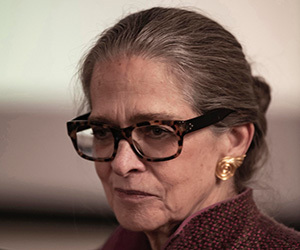
The jury citation states, “For 25 years Chatfield-Taylor directed the American Academy in Rome with a deep commitment to promoting an educational mission based on the lessons that the Eternal City can impart for resolving the design challenges of the present. She oversaw the process of faithfully restoring the McKim, Mead and White building and its gardens while laying the foundations for the Academy to be a solvent, vital and innovative international educational community. She continues to serve this cause as its president emerita.”
Her influence in establishing the Mayors’ Institute on City Design has inspired mayors to be educated to become the keepers of the character and livability of their cities. She established the educational framework for the program that has produced hundreds of mayor-urbanist alumni who today continue advocating for architecture and urban design, challenging planners, architects and developers to work in the spirit of improving their cities.
“Adele has elevated the idea of historic preservation from a narrow focus on individual buildings to the stewardship of the city and, through education, the propagation of a culture of minding both their form and the well-being of their citizens,” Polyzoides said. “We are deeply thankful for her accomplishments, as we are the recipients of what she has accomplished over the last decades.”
This year’s Driehaus Prize and Henry Hope Reed Award laureates were selected by a jury composed of Robert Davis, developer and founder of Seaside, Florida; Melissa DelVecchio, partner at Robert A.M. Stern Architects; Michael Lykoudis, professor of architecture at the University of Notre Dame; Léon Krier, architect and urban planner; Elizabeth Plater-Zyberk, founding principal of DPZ; and Demetri Porphyrios, principal of Porphyrios Associates.
Latest ND NewsWire
- Banks that identify fraudsters increase loyalty, retain more defrauded customers than others who never were compromisedIn a new research study, Vamsi Kanuri, the Viola D. Hank Associate Professor of Marketing at the University of Notre Dame’s Mendoza College of Business, found that banks that identify fraudsters earn customer loyalty and lose customers if they can’t say who was responsible for a fraudulent transaction.
- Notre Dame to host summit on AI, faith and human flourishing, introducing new DELTA frameworkThe Institute for Ethics and the Common Good and the Notre Dame Ethics Initiative will host the Notre Dame Summit on AI, Faith and Human Flourishing on the University’s campus from Monday, Sept. 22 through Thursday, Sept. 25. This event will draw together a dynamic, ecumenical group of educators, faith leaders, technologists, journalists, policymakers and young people who believe in the enduring relevance of Christian ethical thought in a world of powerful AI.
- Notre Dame Democracy Initiative hosts bipartisan conversation with Western state governorsTwo Western state governors known to work across the aisle on policy issues such as water, housing and energy will visit the University of Notre Dame for a fireside chat about how Western state pragmatism can serve as a model for the country to overcome polarization.
- In new research, Roy Scranton explores climate change and the limits of human progressIn his most recent book, “Impasse: Climate Change and the Limits of Progress,” Scranton, an associate professor of English, defines the impasse he sees as “not only political and institutional, but cognitive, existential and narrative” and asserts that the only path forward is through embracing what he terms ethical pessimism. “A lot of people confuse pessimism with nihilism, apathy and despair,” Scranton said. “But pessimism is actually about recognizing our limits, letting go of unrealistic goals, finding solidarity in the fact of human suffering and doing what you can now, not in some utopian future.
- Notre Dame MBA launches deferred admission programThe Notre Dame MBA Deferred Admission Program allows candidates with little or no work experience, including college seniors, to secure admission before reaching the recommended three years of work experience to enroll.
- ‘Prebunking’ false election claims may boost trust in electionsIn recent years, democracies worldwide have seen a growing erosion of trust in election outcomes and institutions, driven in part by fears of widespread fraud. New Notre Dame research finds that “prebunking” — providing accurate information before false claims spread — boosts trust in elections more effectively than traditional fact-checking.









